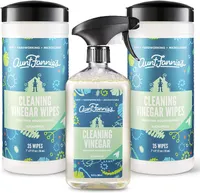Everything you need to know about green cleaning, according to professional cleaners
Is green cleaning safe for your whole home? This is everything you need to know, according to experts

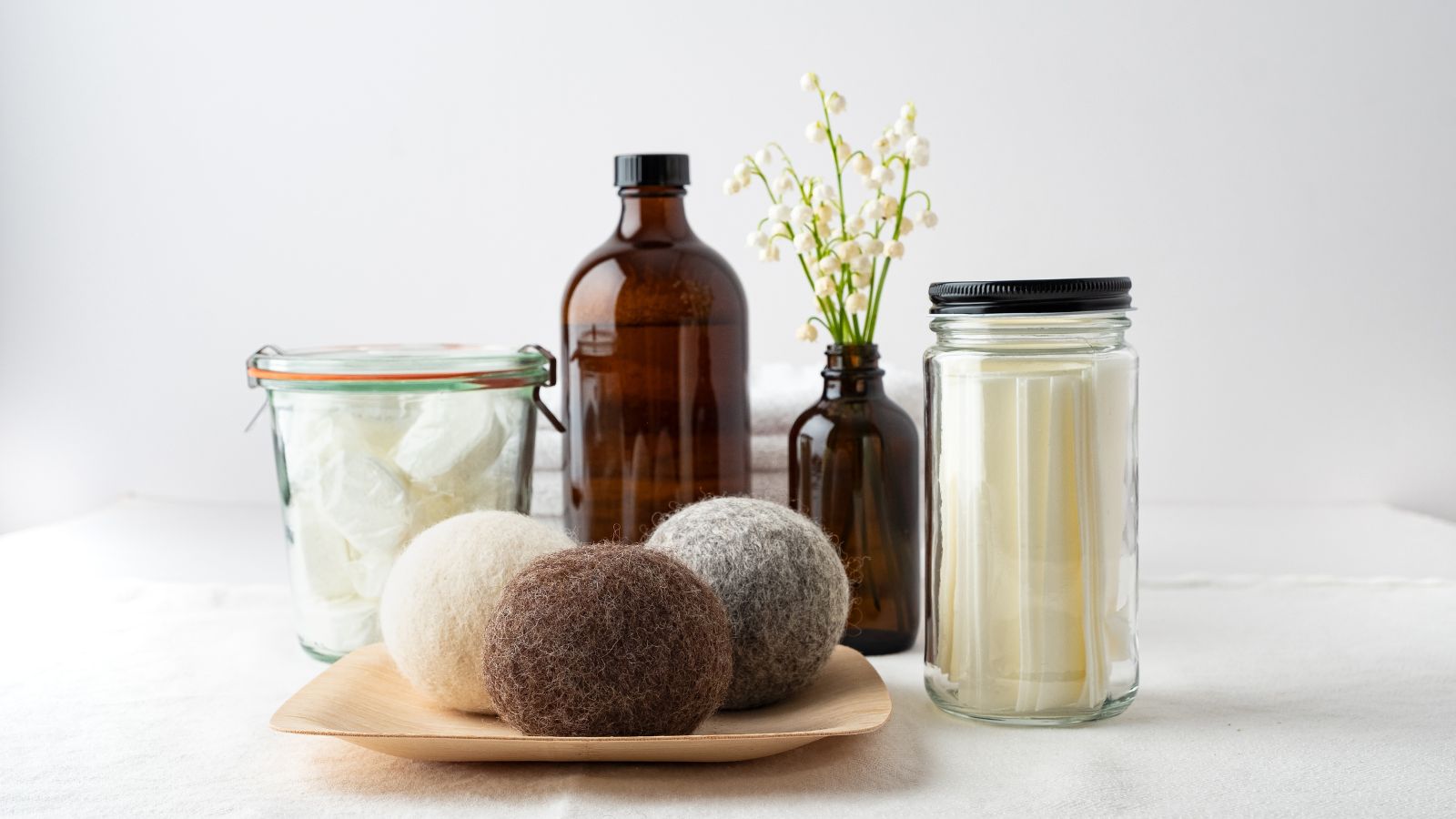
Design expertise in your inbox – from inspiring decorating ideas and beautiful celebrity homes to practical gardening advice and shopping round-ups.
You are now subscribed
Your newsletter sign-up was successful
Want to add more newsletters?

Twice a week
Homes&Gardens
The ultimate interior design resource from the world's leading experts - discover inspiring decorating ideas, color scheming know-how, garden inspiration and shopping expertise.

Once a week
In The Loop from Next In Design
Members of the Next in Design Circle will receive In the Loop, our weekly email filled with trade news, names to know and spotlight moments. Together we’re building a brighter design future.

Twice a week
Cucina
Whether you’re passionate about hosting exquisite dinners, experimenting with culinary trends, or perfecting your kitchen's design with timeless elegance and innovative functionality, this newsletter is here to inspire
Green cleaning has become a staple in many of our homes thanks to its rise in popularity among cleaning influencers online.
From cleaning with vinegar to cleaning with lemon juice, these quick cleaning hacks can appear a godsend, allowing us to quickly clean our homes without fearing dangerous chemicals or damaging our belongings.
But is green cleaning really enough to deep clean our entire home, from the living room to the bathroom? This is everything you need to know about green cleaning straight from Professional cleaners.
Everything you need to know about green cleaning
As with any cleaning tips, using solely green cleaning in your property has several pros and cons. While it may help with allergies, it might not be enough to kill some dangerous bacteria that make you sick.
This is what the experts advise when it comes to green cleaning.
The Pros
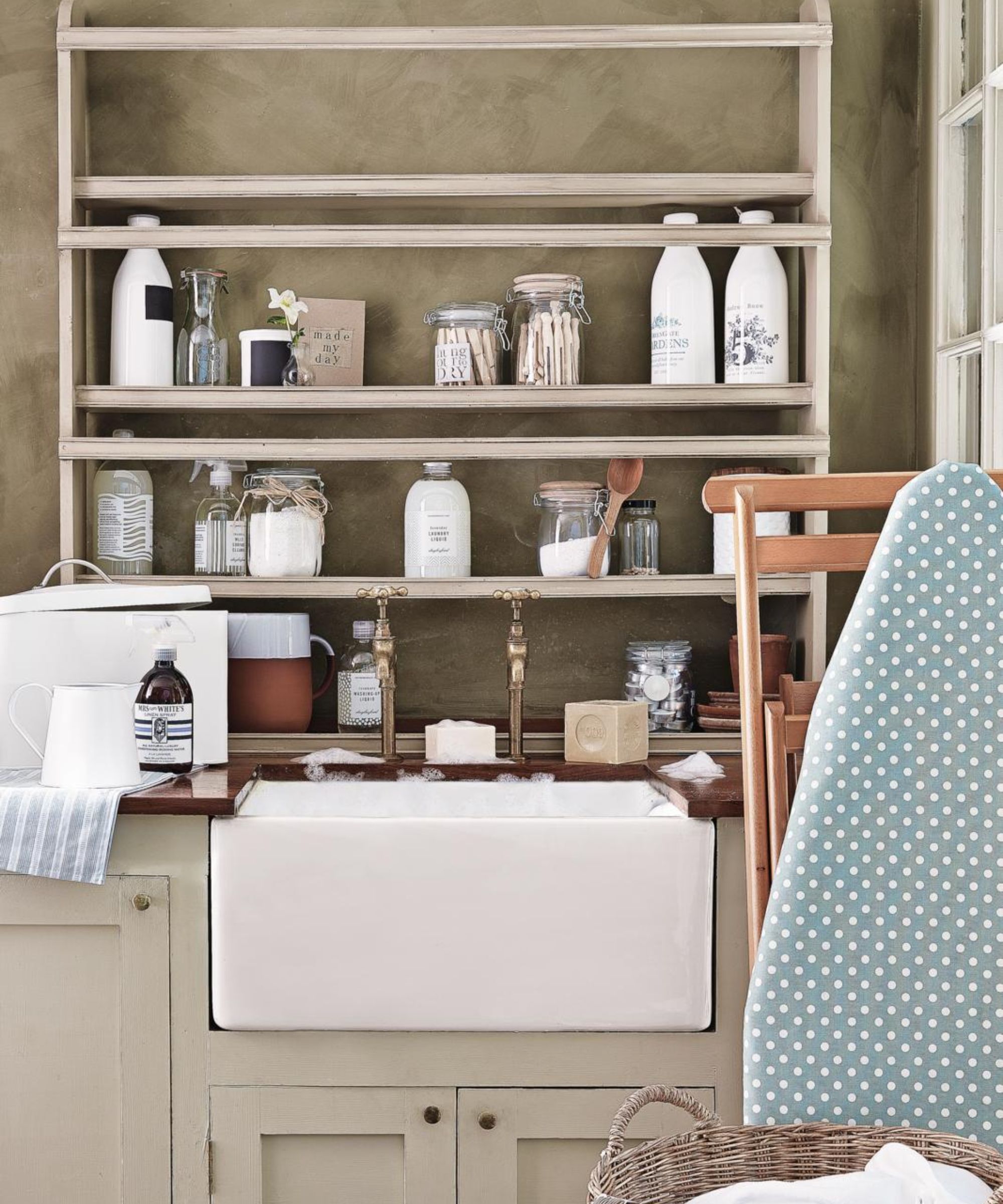
When you take harsh cleaning chemicals out of the equation, cleaning can become a lot less overwhelming and far simpler. This is why the experts often prefer it.
1. It is cheaper
'If you are looking to save money at home, then green cleaning is a great way to cut down on household maintenance costs,' begins Ryan Knoll, cleaning expert and founder of Tidy Casa. 'While buying commercial green products can be pricey, making your own DIY cleaning solutions can slash these costs with the added benefit of always having cleaning solutions for every part of your home on hand,' he says.
Design expertise in your inbox – from inspiring decorating ideas and beautiful celebrity homes to practical gardening advice and shopping round-ups.
‘Most people don’t realize everyday products like alcohol, vinegar, baking soda, and even regular water can accomplish most tasks for pennies on the dollar.’ Perfect for if you want to cut down on cleaning costs or save money on your laundry.

Ryan Knoll is the CEO and founder of Tidy Casa, a cleaning service that now spans multiple states across the US.
2. It is healthier
'One of the main draws to natural green cleaning is the fact it is healthier – both for you and the environment,' echoes Yola Robert, certified holistic nutritionist and health coach:
‘Cleaning products are one of the first things we try to reduce or eliminate due to the chemicals, fragrances, parabens, and phthalates that are endocrine disrupting and can cause serious health problems when used over the long run,’ she shares. ‘My rule of thumb is to use 'green' cleaning products 95% of the time for your day-to-day needs. You can keep the heavier heavy-duty cleaning products for more intense cleaning, spills or messes, but there is absolutely no need to use them several times a day.’
Aunt Fannie's Vinegar Cleaning Bundle | View at Amazon
Yola highly recommends cleaning brands such as Aunt Fannie's for high-quality green cleaning products that don't contain hidden chemicals. This scented vinegar starting kit is perfect for everyday messes.

Yola is Holistic Nutritionist and Health Coach giving her a unique perspective on everything from understanding how to set up your finances with a partner to breaking down the best foods to eat for skin and gut health. In her free time, Yola works with non-profits supporting mental health initiatives for youth and teens.
3. They are generally safer to use
'Besides improving your general health over the long run, using natural cleaning products is safer more generally, helping you to stay on top of your house hygiene without damaging your eyes and skin with irritating chemicals, adds Shayne Jeramos, cleaning specialist at Bright Cleaners.
'With there being so many cleaning products you should never mix in fear of creating a volatile chemical reaction, switching out to all-natural products can help to eliminate fears around cleaning,' Shayne continues. ‘They are also less likely to cause accidents like chemical burns or poisoning.’

Shayne Jeramos has been a cleaning specialist at Bright Cleaners for over 2 years and has extensive experience with residential and cleaning services.
The Cons
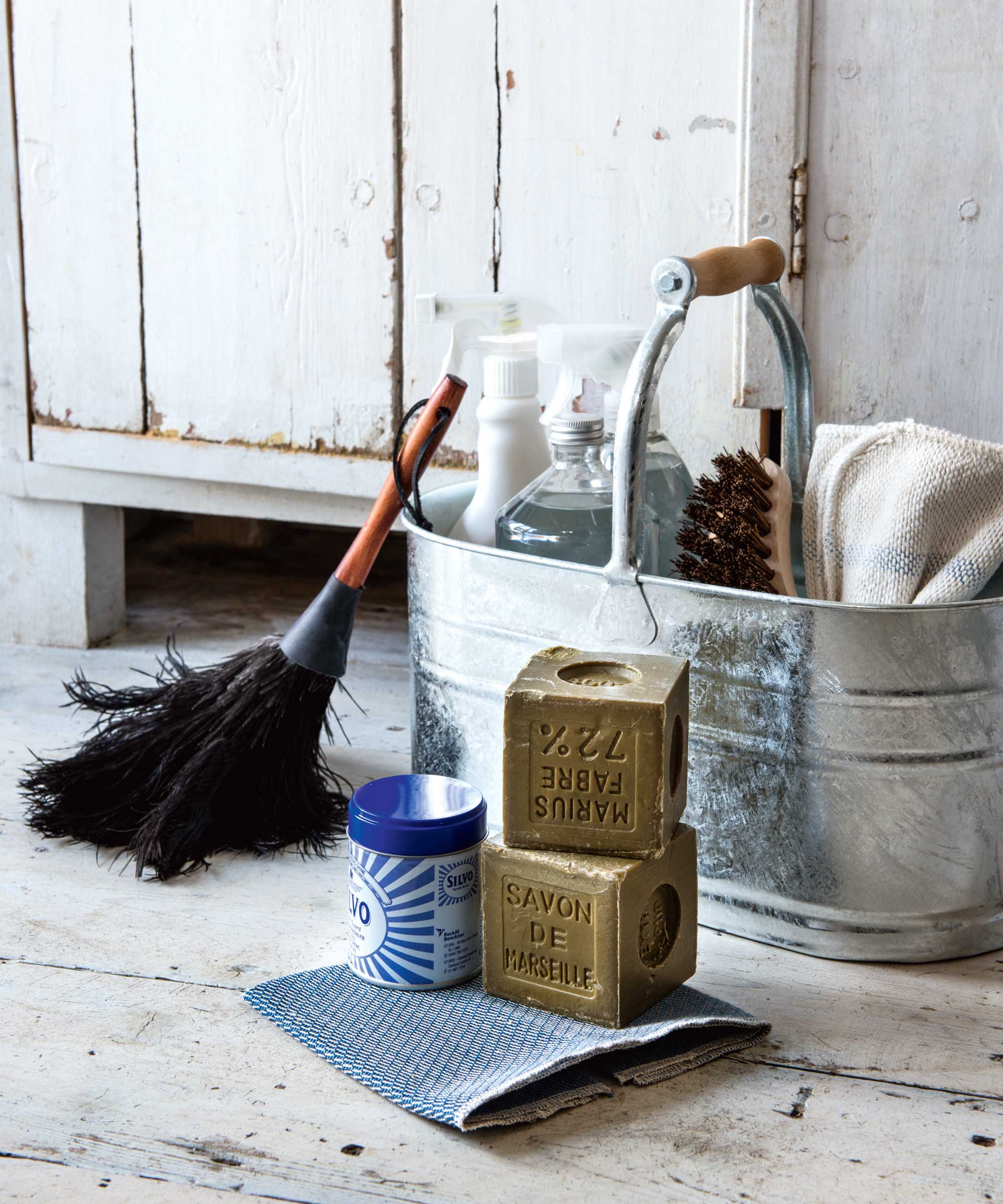
Every method has its downsides. While green cleaning doesn't damage your home and is unlikely to affect your health, it can make cleaning your home a little more time-consuming. This is what the experts want you to know before tossing all your chemicals in the trash:
1. Green solutions require more effort for the same results
'Natural cleaners can be as effective as commercial cleaners for most everyday cleaning tasks, but they can sometimes do with a little extra effort on your side to ensure you get perfect results, warns Alessandro Gazzo, cleaning expert and founder of Emily’s Maids.
If you are using green cleaning to tackle the hardest of household cleaning tasks, such as scrubbing an oven or cleaning glass shower doors to remove soap scum, you need to compensate for the lack of chemicals with elbow grease, he says.
‘It’s hard to make a product that is plant-based or mineral-based, safe to use, and strong and good at their job all at the same time.’
2. They are less effective on stains
Using white vinegar in laundry is nothing new for removing stains and making dingy whites white again, but it may not be the most efficient way to tackle deep, set-in stains that might ruin your garments and soft furnishings, Ryan Knoll, cleaning expert, warns. ‘We’ve seen how effective these can be for most household cleaning needs, but the green products won't always match the potency of chemical cleaners,’ he explains.
For this reason, it may be a good idea to keep a commercial detergent or stain remover to hand in case.
3. They have a reduced shelf life
'When making your cleaning solutions, whether you are making laundry detergent or a homemade window cleaner, it is important to take into account the shortened life span of the products,' reminds Yola Robert, health coach. 'They need to be kept in a cool, dry area to help them last due to the lack of preservatives.'
When relying on natural products you have made yourself, make them in smaller batches and use them up or replace them every few weeks to avoid cleaning with products that have lost their potency.
4. The results may vary
'When crafting your own cleaners, they may also vary in potency due to the nature of hand-measuring ingredients. As a result, the effects of our cleaners may differ slightly over time,' cleaning expert Ryan Knoll notes.
‘Especially on surfaces like mirrors or chrome, results with eco-friendly products can be less consistent compared to chemical cleaners, leading to streaking,’ he explains. This is not damaging per se, but it highlights how important using measurements and weighing scales can be if you want exact results time and time again.
FAQs
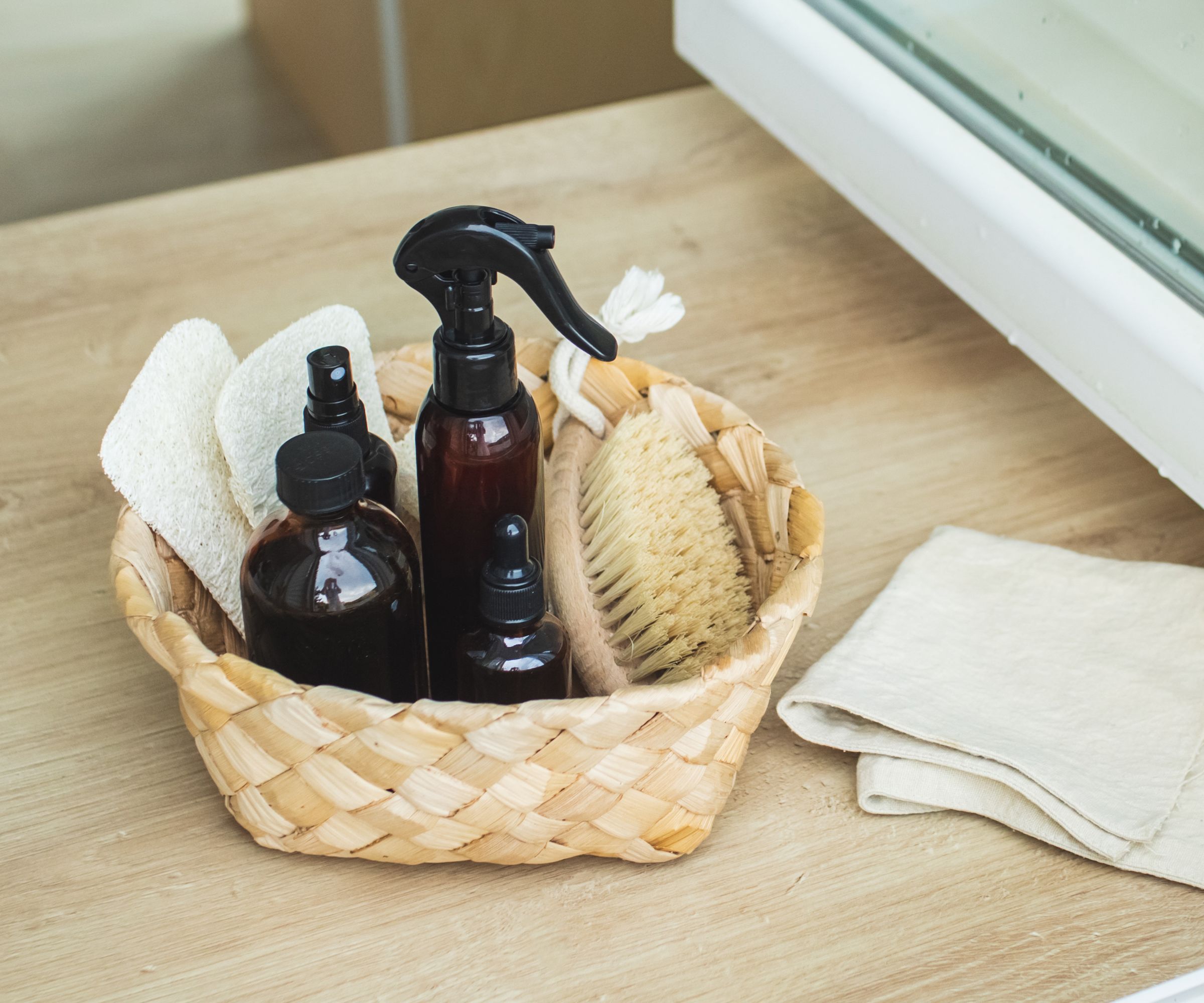
What are the pros and cons of chemical cleaning?
Using chemicals to clean your home is commonplace, and as with any cleaning method, has its pros and cons. On the positive side, commercial chemical cleaners are designed specifically to target common cleaning problems around your home, from fighting tough grease in ovens to killing bacteria and removing stains in a toilet. For this reason, they are often simple to use and require minimal effort.
On the other hand, chemical cleaners can be abrasive both to the items around your home and to your health, potentially irritating your skin, eyes, and airways when not used in the right conditions. What’s more, chemical contamination has the potential to create dangerous fumes. As a result, it is important to use chemical cleaners sparingly and according to instructions to avoid mistakes.
Is green cleaning sustainable?
It is usually more sustainable to use greener natural methods to clean your home. Not only does using green cleaners cut down on the number of chemicals you are adding to the environment, but it usually also helps to cut down on plastic as you reuse your spray bottles to make your products or invest in natural commercial cleaners that (more often than not) emphasize using recycled or recyclable packaging.
'It is important to note that just because a commercial cleaning product is branded as ‘green’, doesn’t mean it is free from chemicals and additives,' warns Yola Robert, health coach. ‘There is a lot of greenwashing that has happened in the cleaning industry over the last few years where brands will use green marketing terms on their packaging to make consumers think they are a non-toxic brand,’ she explains.
Be sure to check the ingredient list thoroughly before purchasing to avoid greenwashing when picking cleaning products, or opt for making your own DIY cleaning solutions instead.

Chiana is Homes & Gardens’ kitchen appliances editor. With a lifelong passion for cooking and baking, she grew up experimenting in the kitchen every weekend with her baking-extraordinaire Mom, and has developed a great understanding of how tools and appliances can make or break your ideal relaxing kitchen routine.
